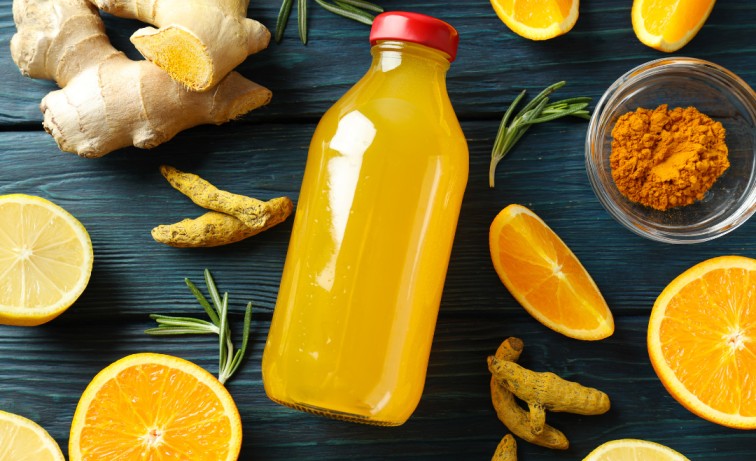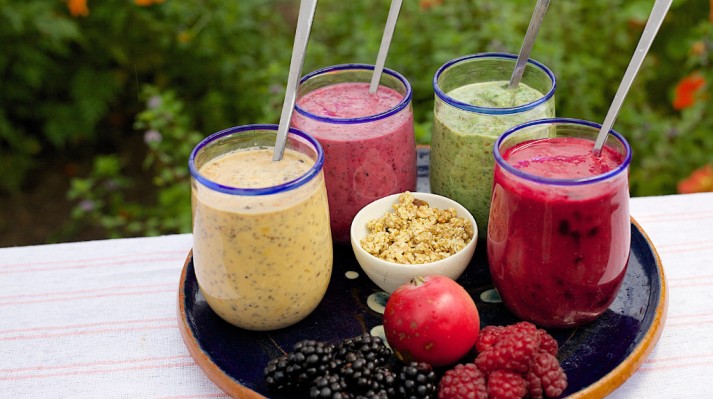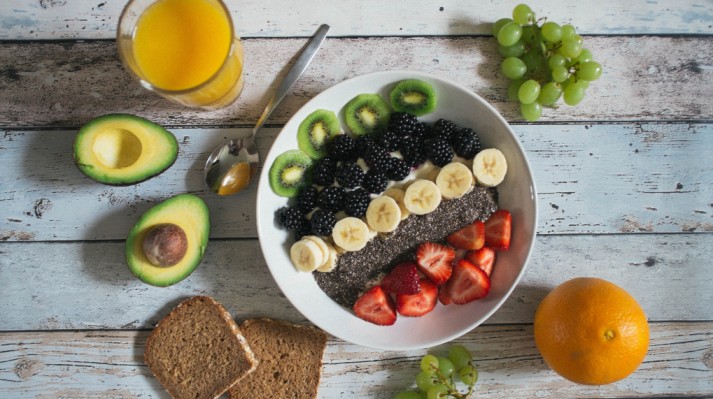I’m Ayesha Dutta Chakraborty, a Senior Nutritionist at QUA Nutrition. With over five years of experience in nutrition and dietetics, I’ve worked with clients facing a range of health concerns, including high blood pressure, also known as hypertension. As someone passionate about guiding individuals toward healthier lives, I firmly believe that what you eat can transform your health—and this is especially true for managing blood pressure.
The “silent killer,” or hypertension is a lifestyle disorder that affects millions of people around the world. Although asymptomatic, it contributes to a higher risk of heart disease, stroke, kidney problems, and complications. Severe hypertension is a serious condition that can cause damage to arteries, the heart, and other organs.
Maintaining optimum levels of high blood pressure by choosing what we eat is important. By choosing wisely what you put into your mouth, individuals can unload and lighten up the pressure on their cardiovascular system and assist its function, which in turn reflects positively on quality of life. This article will tell you which diet and foods you can follow to keep your blood pressure under control. This guide focuses on giving readers the tools—including practical tips and food options—to help lead a healthier life that ultimately helps control blood pressure.
What is High Blood Pressure?
Hypertension or high blood pressure, occurs when the blood flowing through your arteries creates too much pressure against the walls of your arteries. The condition is determined by systolic pressure (the blood pressure when the heart beats) and diastolic pressure (the blood pressure when the heart is between beats). You usually have high blood pressure if your reading is 130/80 mm Hg or above.
High blood pressure has many contributing factors, such as your lifestyle, diet, and genetics. Genetic predispositions can be worsened by living unhealthy lifestyles such as smoking, physical inactivity, and high alcohol consumption. Another contributing factor is the diet you follow; consuming food that includes large quantities of sodium and saturated fats along with processed foods worsens hypertension.
Role of Diet in Blood Pressure Management
People may not realize the important role that diet plays in the management and reduction of high blood pressure. Some of the nutrients help to improve blood pressure because they act as relaxants, allowing blood vessels to expand and increasing sodium absorption. This may help heart function.
- Potassium counterbalances sodium and may also relieve tension in the blood vessel walls.
- Magnesium is an essential mineral; it plays a role in helping blood vessels relax, which supports healthy blood flow.
- Calcium is necessary for blood vessels to relax and contract normally.
- Fiber-rich foods help you to stay at or get to a healthy weight and improve heart health.
- If you have high blood pressure, it’s a good idea to reduce sodium intake, as excessive sodium can cause your body to retain water, raising blood pressure.
Key Nutrients for Blood Pressure Management
Potassium: This mineral plays a crucial role in reducing hypertension in individuals. It manages blood pressure by balancing the sodium levels in the body. When consuming high levels of sodium, the body tends to retain water, which in turn causes the blood pressure to go up. Potassium allows the body to excrete sodium, lowering blood pressure. Following are some potassium-rich foods:
- Bananas
- Oranges
- Spinach
- Sweet potatoes
Magnesium: The chemical element magnesium is essential for regulating blood pressure. It relaxes blood vessels, allowing healthy blood flow. This relaxation reduces resistance in the arteries. Your cardiovascular health will greatly benefit from magnesium intake. The following are magnesium-rich foods:
- Leafy Greens (such as kale and spinach)
- Nuts (such as almonds and cashews)
- Seeds (such as pumpkin and chia seeds)
- Whole Grains (such as brown rice and oats)
Fiber: This is a type of carbohydrate that helps regulate blood pressure and is beneficial for heart health. Fiber reduces cholesterol levels, improves digestion, and promotes healthy weight gain. Following are some fiber-rich foods that will help you maintain steady blood pressure levels:
- Oats
- Fruits (such as apples and berries)
- Vegetables (such as carrots and broccoli)
- Legumes (such as beans and lentils)
Foods to Include in a High Blood Pressure Diet
Fruits and Vegetables: Consistently consuming a plant-rich diet can significantly reduce the risk of high blood pressure and other cardiovascular diseases. Fruits and vegetables are packed with essential vitamins, minerals, and antioxidants, which can help your overall health and reduce hypertension. Following are some fruits and vegetables to help manage high blood pressure: If you are someone having hypertension. Get a customized diet plan from a dietician and nutritionist for hypertension. A healthy diet plan can control hypertension
- Berries: High in antioxidants
- Leafy greens: Spinach, kale, and Swiss chard are some vegetables rich in potassium.
- Beets: Known for their high nitrate content.
- Avocados: Packed with potassium and healthy fats.
Whole Grains: Including whole grains in your diet is essential to the health of your heart. It provides fiber, vitamins, and minerals that help regulate blood pressure
- Oats: Rich in soluble fiber, which helps lower cholesterol levels.
- Quinoa: A complete protein that provides essential amino acids and fiber to regulate blood pressure.
- Barley: High in fiber, which helps reduce cholesterol levels.
Lean Proteins: These proteins provide essential nutrients without the added saturated fat. This is crucial in maintaining heart health and managing blood pressure.
- Chicken: The most commonly used lean protein that can be prepared in various heart-healthy ways.
- Fish: Salmon and trout are rich in omega-3 fatty acids, which support heart health and help lower blood pressure.
- Beans: High in protein and fiber.
- Tofu: A plant-based protein, low in saturated fat. Helps maintain healthy blood pressure.
Dairy alternatives:
Choosing to swap out dairy-based products can help reduce saturated fat intake. This is important when managing blood pressure and overall heart health.
- Almond Milk: A low-fat alternative that is rich in vitamins and minerals.
- Soy Milk: High in protein and low in saturated fat.
- Low-Fat Dairy: Choose low-fat or fat-free options to reduce saturated fat intake.
Foods to Limit for Blood Pressure Control
Sodium: Controlling the amount of sodium you consume is crucial to regulating high blood pressure. As mentioned, sodium tends to retain water in the body, increasing the risk of hypertension. Highly processed foods often contain high amounts of sodium. Following are some high-sodium foods to avoid:
- Canned Soups
- Salty Snacks (such as potato chips and pretzels)
- Fast Foods
- Processed Meats (such as bacon and sausages)
- Instant Noodles
Added Sugars: There are several overall benefits to reducing sugar in your diet. As a plus, it also helps reduce the risk of high blood pressure. High sugar consumption also leads to weight gain. Cutting down sugar gradually or switching to natural sweeteners and low-sugar snacks can make a significant difference. Following are some alternatives to high-sugar foods:
- Fruits (such as berries and apples)
- Low-sugar snacks (such as nuts and seeds)
- Dark Chocolate (in moderation)
Saturated and Trans Fats: These fats are known to increase the risk of developing high blood pressure or hypertension in an individual. It is advisable to replace the same with healthier alternatives to improve cardiovascular health.
- Olive Oil
- Avocado
- Nuts (such as almonds and walnuts)
- Fatty Fish (such as salmon and mackerel)
Tips for Following a Heart-Healthy Diet
Meal planning: Practical meal planning is key to working healthy choices into your meals. Here are some tips for a heart-healthy diet:
- Eat Whole Foods: A good base for a good diet includes fresh fruits, vegetables, whole grains, lean proteins, as well as healthy fats. Many of these foods are low in sodium and unhealthy fats, natural characteristics that make for heart-healthy options.
- Make Meals Balanced: Combine a variety of food items in each meal to get different nutrients. Combine greens with grains and lean or plant proteins.
- Steer Clear of Pre-packed Styles of Cooking: Numerous pre-packed styles of cooking can contain hefty amounts of sodium, undesirable fats, and additional sugars. Always choose a home-cooked meal where you can supervise the ingredients.
- Batch Cooking: Cook big amounts of healthy food and store them in portions for the week. This makes it more convenient to adhere to a healthy diet and skip unhealthy options.
- Have Healthy Snacks Easily Available: You would not want to have access to those processed snacks, so be sure to stock up on fruits, nuts, yogurt, and all that good stuff.
- Cooking Techniques: The trick to making heart-healthy meals tasty is by improving flavor without the addition of salt.
- Grilling: The grill imparts a unique smoky flavor to meats and veggies that do not require any salt. Similarly, it decreases excess fat content by dripping fat that comes out of the product.
- Steaming: This technique retains the original taste and vitamins of vegetables. You can also add herbs or some lemon juice to the water.
- Flavoring with Herbs and Spices: Use more herb and spice seasonings like garlic, ginger, turmeric, cumin, rosemary, and basil for flavor instead of salt.
- Brine: Soak meats and vegetables in citrus juices, vinegar, olive oil, and herbs. This gives a subtle flavor complexity without having to rely on all of the salt.
- Sauté: Use a small amount of healthy oil, like olive oil, to directly cook vegetables along with fresh herbs and spices. This technique preserves the nutrients yet adds flavor.
Keeping your heart healthy is key to regulating high blood pressure. For starters, fresh fruits and vegetables high in potassium, such as bananas and leafy greens, have a balancing effect on sodium, while magnesium from nuts and whole grains helps to relax the blood vessels. Engaging in physical activities such as pilates, gym, and running can also deter hypertension. It is advisable for people who are already diagnosed with hypertension to be mindful when doing physical activity. They should consult a doctor before engaging in extreme physical sports. If you have further questions about diet, lifestyle, and more, Qua Nutrition is your go-to.
Qua Nutrition has established itself as one of the most trusted and reliable nutritionists in India, with expert dietary advice tailored to an individual’s requirements. For preventive lifestyle changes, the power to fight high blood pressure problems, and understanding how to maintain regular good health with the best nutritional advice in personalized nutritious plans are well handled by expert nutritionists at Qua Nutrition. Get in touch with our consultants today so you can kickstart your journey towards a healthier lifestyle.









